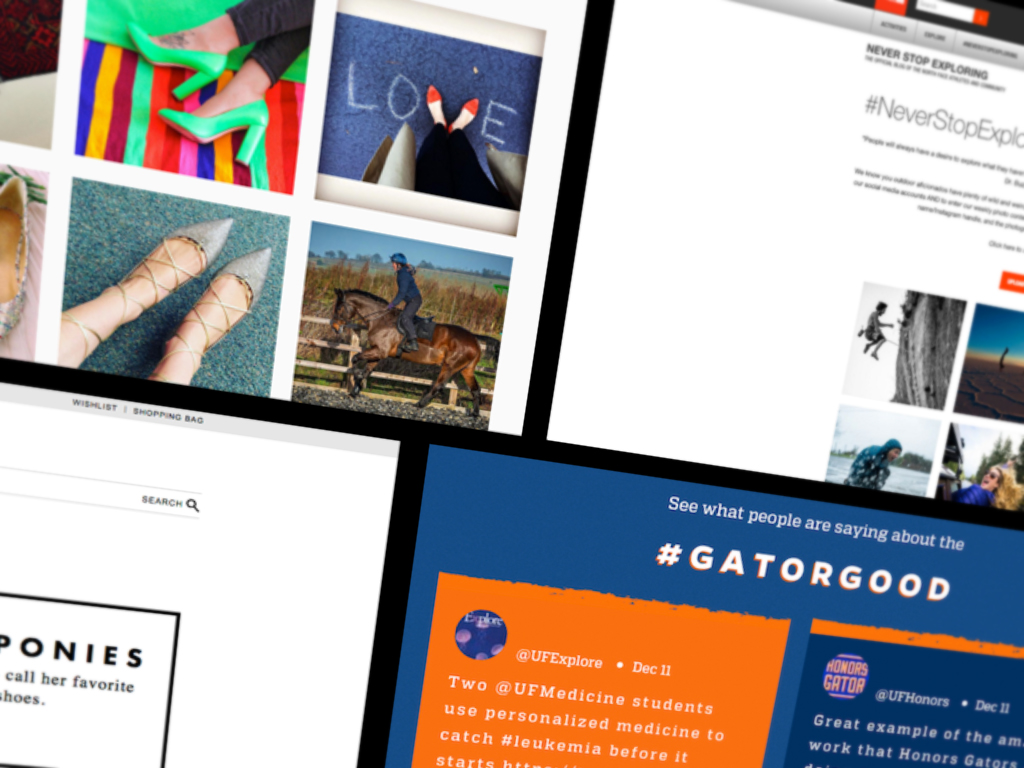The number of Super Bowl ads with hashtags slipped to 50 percent in 2015, which is down from 57 percent in the prior year, according to Marketing Land’s Hashtag Bowl. That means Super Bowl XLIX had a total of 28 hashtags. On such a huge night for the advertising industry, does a lukewarm embrace of the one-time branded Twitter staple mean anything significant about how brands are talking to consumers?
Hashtag use was sporadic among Super Bowl advertisers this year. In addition, overall mentions of social networks was down as a whole with both Twitter and Facebook each losing one mention this year, for a total of three and four, respectively. But it was obviously still an active night for brands on both networks. For its part, McDonald’s turned to Twitter for a Super Bowl giveaway that reportedly tweeted about other ads during the game, asked fans to retweet it, and then gave away related products. By February 3, the tweets had been removed from McDonald’s Twitter feed, but, per the aforementioned report, these tweets didn’t include hashtags. Super Bowl XLIX also saw plenty of brand-brand interaction on Twitter, with marketers at big game advertisers using the platform to comment on each other’s ads and/or otherwise engage each other. That includes brands like Doritos, Loctite, Nissan, Bud Light and Coca-Cola.
Are Brands Rethinking Hashtags?
According to Apu Gupta, CEO of visual marketing platform Curalate, the hashtag drop-off is not as interesting as the fact that only seven ads with hashtags actually used branded hashtags – and four of those hashtags came from Doritos, which used #Doritos, and Lexus, which used hashtags like #LexusNX and #LexusRC. “I think the hashtag may have had its day when it comes to brands using them in the way they once did,” said Mike Grehan, CMO of search marketing agency Acronym Media. “There have been far too many incidents where brands get it wrong and, by and large, they’re totally misused anyway. I mean, if they’re following a thread of a conversation or topic, fine. But in the main they’re used as self-promotional punctuation more than anything else #iamthezaniestpersonever.” In addition, Grehan said consumers can’t always read hashtags correctly, pointing to the #nowthatcherisdead hashtag after the death of former UK Prime Minister Margaret Thatcher that caused concern for entertainer Cher in the Twittersphere. “I don’t think there’s a de-emphasis on social. Probably more of a rethink,” Grehan said.
Brands Focus On Engaging, Inspiring
Gupta agreed there has been a shift in that being social is “no longer about spoon-feeding consumers marketing messaging and urging them to follow your brand. Rather, it’s about creating content that’s both inspirational and actionable, and using that to start a conversation that outlives the Big Game.” McDonald’s, which had one of the top Super Bowl ads, had 634,310 mentions during the game, according to Twitter. And McDonald’s didn’t use a single hashtag, Gupta said. Always, the second most mentioned brand on Twitter, pulled in 455,695 mentions for its #LikeAGirl campaign, Twitter says. “In other words, hashtags don’t start a dialogue, but they can channel the conversation and make it easier for consumers to participate,” Gupta said. “At the end of the day, both McDonald’s and Always went after the heart, choosing emotional uplift over heavy branding. And what they proved was that, when done right, this can be even more effective.” Further, GoDaddy says it saw more upside in Facebook. Like other brands, the Internet domain registrar and web hosting company had additional content surrounding its Super Bowl ad, such as Coke’s online videos, the McDonald’s Twitter contest, and Nationwide’s website on childhood safety. “[That] meant it was less about a hashtag on an ad and more about the engaging with people who went to social media naturally,” according to a GoDaddy rep.
What do you think the future holds for branded hashtags?


